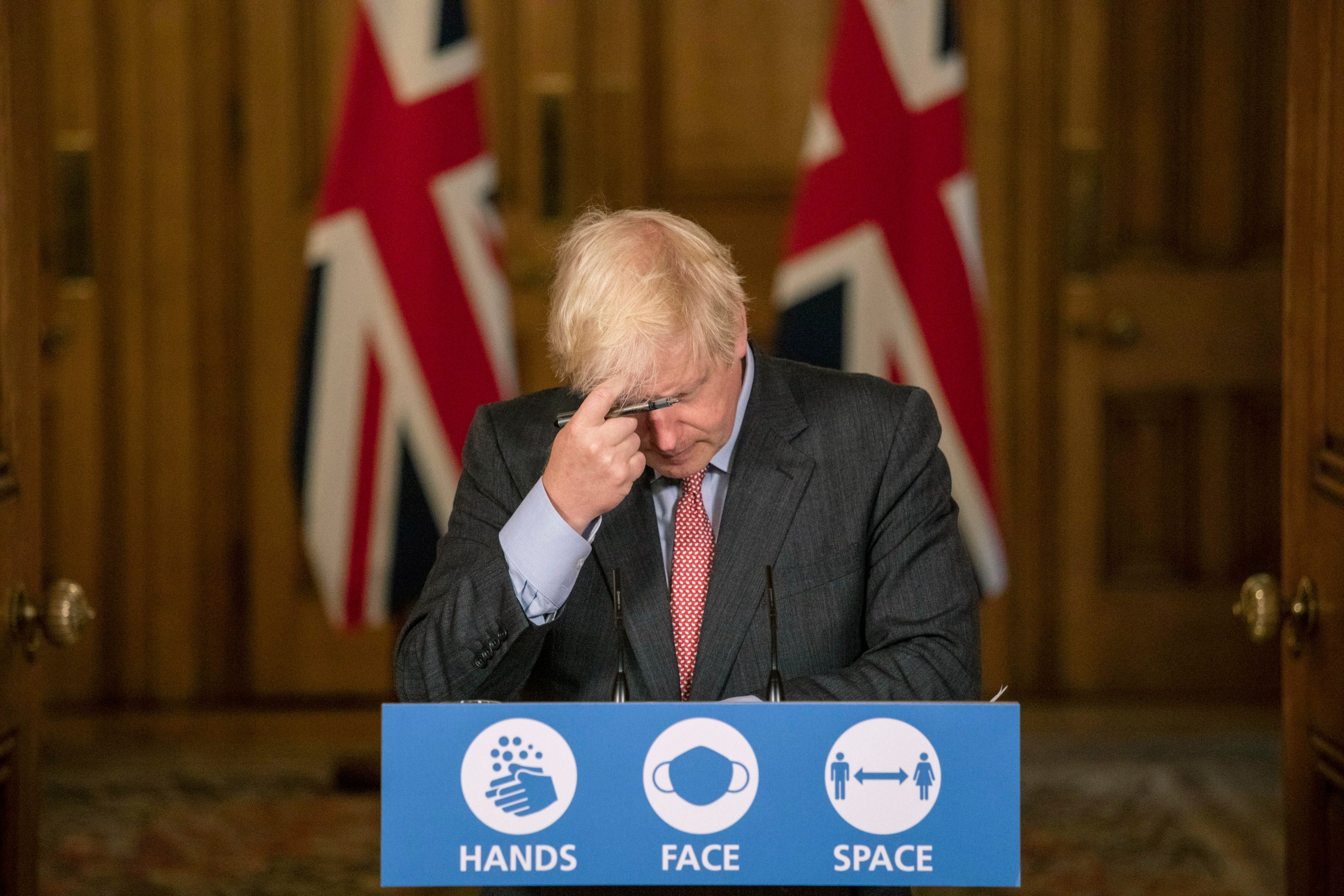New rules for Liverpool as virus cases in England quadruple
Britain has imposed tighter restrictions on social gatherings in the port city of Liverpool and three towns as scientists estimate the number of COVID-19 cases in England has quadrupled in the last month

Your support helps us to tell the story
From reproductive rights to climate change to Big Tech, The Independent is on the ground when the story is developing. Whether it's investigating the financials of Elon Musk's pro-Trump PAC or producing our latest documentary, 'The A Word', which shines a light on the American women fighting for reproductive rights, we know how important it is to parse out the facts from the messaging.
At such a critical moment in US history, we need reporters on the ground. Your donation allows us to keep sending journalists to speak to both sides of the story.
The Independent is trusted by Americans across the entire political spectrum. And unlike many other quality news outlets, we choose not to lock Americans out of our reporting and analysis with paywalls. We believe quality journalism should be available to everyone, paid for by those who can afford it.
Your support makes all the difference.Britain imposed tighter restrictions on social gatherings in the port city of Liverpool and three towns as scientists reported Thursday that the number of COVID-19 cases in England has quadrupled or more in the last month.
Health Secretary Matt Hancock told the House of Commons on Thursday that the infection rate in Liverpool had risen to 268 per 100,000 people, seven times the national average. He said it was time to extend tougher measures to the city, as well as to the nearby town of Warrington and in Hartlepool and Middlesbrough, which are on the other side of the country.
The restrictions are similar to those imposed in northeastern England earlier this week, which forbid mixing of households except public spaces like parks. The government also recommended that people visit nursing homes only in exceptional circumstances.
“We’ve had to take difficult but necessary decisions to suppress the virus " Hancock said. “The only alternative to suppressing the virus is to let it rip, and I will not do that.”
The measures announced Thursday are the latest in a series of heightened restrictions targeting local coronavirus hotspots as the British government struggles to control the spread of COVID-19. Confirmed daily new cases of COVID-19 rose above 7,000 in each of the past two days, the highest recorded since the pandemic began. Britain’s official death toll has passed 42,000 — the highest level in Europe.
But scientists have offered some hope that the spread of the disease may be slowing.
A large government-commissioned study that randomly tested tens of thousands of people in England found that the epidemic is not increasing as rapidly as scientists had feared.
“At the moment, we seem to be still at very high levels of the virus, and we do seem to still have a bit of an upward trajectory, but that very fast increase in the virus seems to have slowed and that’s very encouraging,” Paul Elliott, chair of epidemiology at Imperial College London, told the BBC.
Research by Elliott and his colleagues, based on testing of more than 80,000 volunteers across England Sept. 18-26, found around one in 200 people were infected with the coronavirus, an increase from about 1 in 800 people in early September.
Still, Elliott said the time to act was now.
“We need to get on top of this now so we don’t have an exponential increase,” he said.
In addition to local restrictions, Prime Minister Boris Johnson's government last week banned social gatherings of more than six people and imposed a 10 p.m. curfew on bars and restaurants throughout England.
Dr. David Strain of the British Medical Association, urged caution, as infection rates remain high among certain groups. He noted that factors other than the government measures may be slowing the disease's spread.
“We should not be fooled into thinking that current government measures like the ‘rule of six’ – themselves confusing and inconsistent – are the silver bullet to defeating COVID-19,'' Strain said. “Everyone in their daily life needs to be aware of the risks that this deadly virus still poses.''
Elliott's study noted that the steep rise in cases began in August — when the U.K. government launched a month-long promotion offering people discounts to eat at restaurants as authorities sought to jumpstart the economy after a nationwide lockdown.
Their study noted that rates of infection are increasing among all age groups in England, with the highest prevalence among 18 to 24-year-olds. The scientists reported that Black people and those of Asian descent were twice as likely to have COVID-19 as white people in England.
___
Follow AP’s pandemic coverage at http://apnews.com/VirusOutbreak and https://apnews.com/UnderstandingtheOutbreak